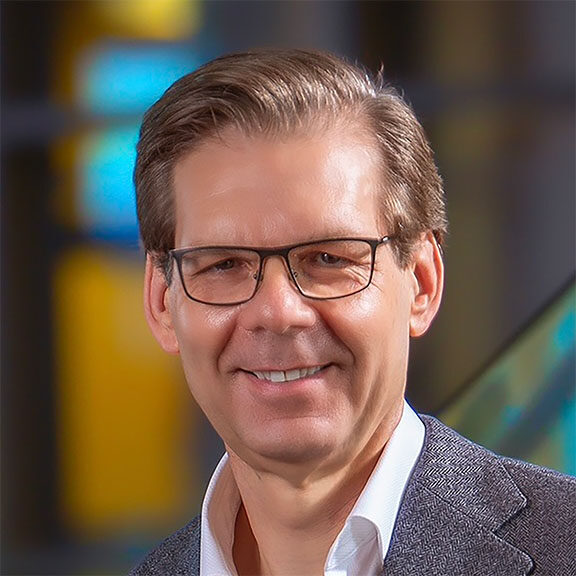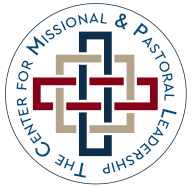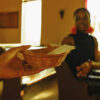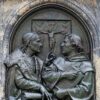CMPL Newsletter
March 28, 2025
Global
Biblical. Reformational. Missional. Affordable. Global. These are the five key themes around which we organized the Center for Missional and Pastoral Leadership. What do we mean by “Global”? Quite simply, all nations are included in God’s Kingdom. When the apostle Paul writes to the church in Corinth, he addresses them as both the local congregation and as part of the entire church on earth: “To the church of God that is in Corinth, to those sanctified in Christ Jesus, called to be saints together with all those who in every place call upon the name of our Lord Jesus Christ, both their Lord and ours.” This sentence seems a bit complex, but notice that the Apostle addresses “The church of God that is in Corinth” and “all those in every place who call upon the name of our Lord, Jesus Christ” – that is, every Christian everywhere—all those who call upon the name of the Lord. For the Apostle Paul, the church is both local and global.
The rest of the New Testament reflects this reality of the church as both local and global. The congregation gathers locally around the Word—and this is regularly encouraged (e.g., Hebrews 10:25). Yet, we are reminded that at the same time, those who call upon the name of the Lord are all over the world, from “every nation, from all tribes and peoples and languages” (Revelation 7:9). The Apostle Paul reminds us in Colossians that in Christ “there is not Greek and Jew, circumcised and uncircumcised, barbarian, Scythian, slave, free; but Christ is all, and in all” (3:11).
God “desires all people to be saved and to come to the knowledge of the truth” (1 Timothy 2:4). All people, quite obviously, includes people from all backgrounds and origins. The mission of God is to bring all peopleinto his Kingdom by the work of Christ and the power of his Gospel.
At its best, the church will reflect this reality of all people, from every nation, tribe, people, and language. This happens in the shared confession of Jesus Christ as Lord and the great historic creeds of the ancient church. But it also happens at the local, congregational level in very concrete ways. For example, I serve as associate pastor of Our Savior Lutheran in Arlington, VA. In our county, at least Nineteen languages are spoken as a first language by a statistically significant percentage of the population. Our Savior offers a weekly worship service in Tigrinya, with many members originally from Eritrea. Nineteen languages is not quite “every language” as described in Revelation 7, but the reality is that in virtually every community in the U.S. you will find many people from many different “nations, tribes, and peoples.” What an opportunity to share the Gospel, and to reflect the biblical description of Christ’s church as encompassing all people.
Because the courses at Institute of Lutheran Theology are taught online, the participants reflect the global nature of Christ’s church in individual classes and in the various programs of the Center for Missional and Pastoral Leadership. We are a new program so we are not yet sure what the mix of students will be. But the fact the students will come from across the country means that classes will bring people with a variety of experiences and settings. This will enrich the discussion and help us learn how to love and serve all people.
We hope that by the 2026-2027 academic year we can begin to enroll international students. The technology is there; the need will be financial support to enable students from less economically developed regions to participate. If you or someone you know would like to learn more about supporting that program, please let me know!
For additional reading on the global nature of the church, see this article by the Dean of CMPL, Jeffrey Kloha, in the Winter 2025 issue of Concordia Journal: “’All Those Who Call Upon the Name of Our Lord Jesus Christ in Every Place, Their Lord and Ours’: The Multiethnic Church in the New Testament.” The other essays in that issue are quite helpful: “’Mi casa es su casa; A Lutheran Proposal on Being the Church Catholic in an Age of Migration in Dialogue with Roman Catholic Insights on Catholicity” by Leopoldo A. Sanchez and “Do We Really Believe in the ‘Catholic Church’?” by Larry Vogel
| Thank you for joining the weekly newsletter from The Center for Missional and Pastoral Formation! |
| Our goal is to support congregations and leaders through outstanding theological education, with an emphasis on the Bible, our Reformation heritage, God’s mission, our global context, all delivered in an affordable way. |
| Through our partnership at the Institute of Lutheran Theology, we deliver online theological education with some of the best Lutheran teachers and scholars. This newsletter will update you on the program, courses being offered, introduce you to the faculty, and share resources. We will also share prayer opportunities and how to connect to CMPL and ILT as a full-time or part-time student. Our prayer is that we may all be “children of God without blemish in the midst of a crooked and perverse generation, in which you shine like stars in the world, holding forth the word of life” (Philippians 2:15-16).
We look forward to partnering with you in this work of God. |
Rev. Dr. Jeffrey Kloha
Jeffrey Kloha is the Dean of the Center for Missional and Pastoral Leadership. He previously served as Chief Curatorial Officer of the Museum of the Bible in Washington D.C. (2017-2024). He was responsible for the overall artifact collection, exhibitions, educational programs, and research projects offered by the museum. Prior to then he was Provost and Professor of Exegetical Theology (New Testament) at Concordia Seminary, St. Louis (1999-2017). He served as Associate Pastor of Gethsemane Lutheran Church, Lakewood, OH, and currently also serves as Associate Pastor at Our Savior Lutheran Church, Arlington, VA. Kloha has contributed to 31 scholarly published books and articles as well as supervising 13 student theses and publications.







